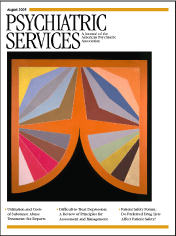Thomas J. Cottle has written a complex and multilayered book about his mother, concert pianist Gitta Gradova. The book is complex, not only because Cottle's subject was a complicated and brilliant woman but also because Cottle attempts to do many things in this one volume. When the Music Stopped: Discovering My Mother is at the same time a fascinating glimpse into the world of heady classical music in the middle of the 20th century; a biography of a brilliant, enormously talented pianist who suffered from rather debilitating depression; a portrait of a tempestuous mother-son relationship that rivals the vitriol found in Who's Afraid of Virginia Woolf; and, finally, the musings of a son who never found a way to tell his mother that he loved her. And as with most books that chart so ambitious an agenda, the book succeeds better at some tasks than at others.
Cottle says often that his mother, despite her fears and anxieties, was able to operate in the world of music with relative ease: "Music was her gift to all of us and it goes without saying that she was the music." Cottle loved hearing her play, even if she was only doing warm-up exercises in their Chicago home, where she entertained the musical elite of her time, so it is not surprising that his book is its most easy and relaxed when Cottle is describing the world of music and musicians that included such notables as Vladimir Horowitz, Jascha Heifetz, Igor Stravinsky, Rachmaninoff, and Toscanini. In the world of music, Gitta Gradova was a witty, talented, clearly charismatic figure whose life gives the reader a glimpse into a world of musical genius and intensity, and Cottle's anecdotes about his mother's soirees and her enchanting storytelling will leave the reader laughing out loud on more than one occasion.
As Cottle describes his mother's depression, her struggles with black moods, and her difficulty accomplishing even simple tasks, the book itself takes a more troubled turn. It is unclear how Cottle understood then—and how he understands now—his mother's illness. Was this a biological depression that would have benefited from medication? Was it related to her decision to give up her music to stay home and raise her children? Or was it the result of having been sent away from her parents' home at a young age to study music and to perform? Cottle grew up in a family in which psychoanalytic jargon was as common as breakfast cereal, and he is clearly comfortable describing interpersonal dynamics within an analytical framework. Despite the abundance of psychological explanations for his and his mother's behavior, however, it remains unclear how he wants us to understand the depression that affected his mother and influenced his own life so profoundly.
Finally, the book loses its way a bit as the author turns it into a diary of his own childhood and the tormented relationship he had with his mother. His recollections of the insults they hurled at one another make the reader wince, and one comes away wishing Cottle had found a way to talk to his mother that would have brought them both some sense of peace and comfort. Cottle has written a rich and complicated portrayal of a life, at times moving, at times funny and entertaining, and at times troubled and unresolved. Perhaps that is as it should be, given that the life of Gitta Gradova, his mother, was clearly all those things.

